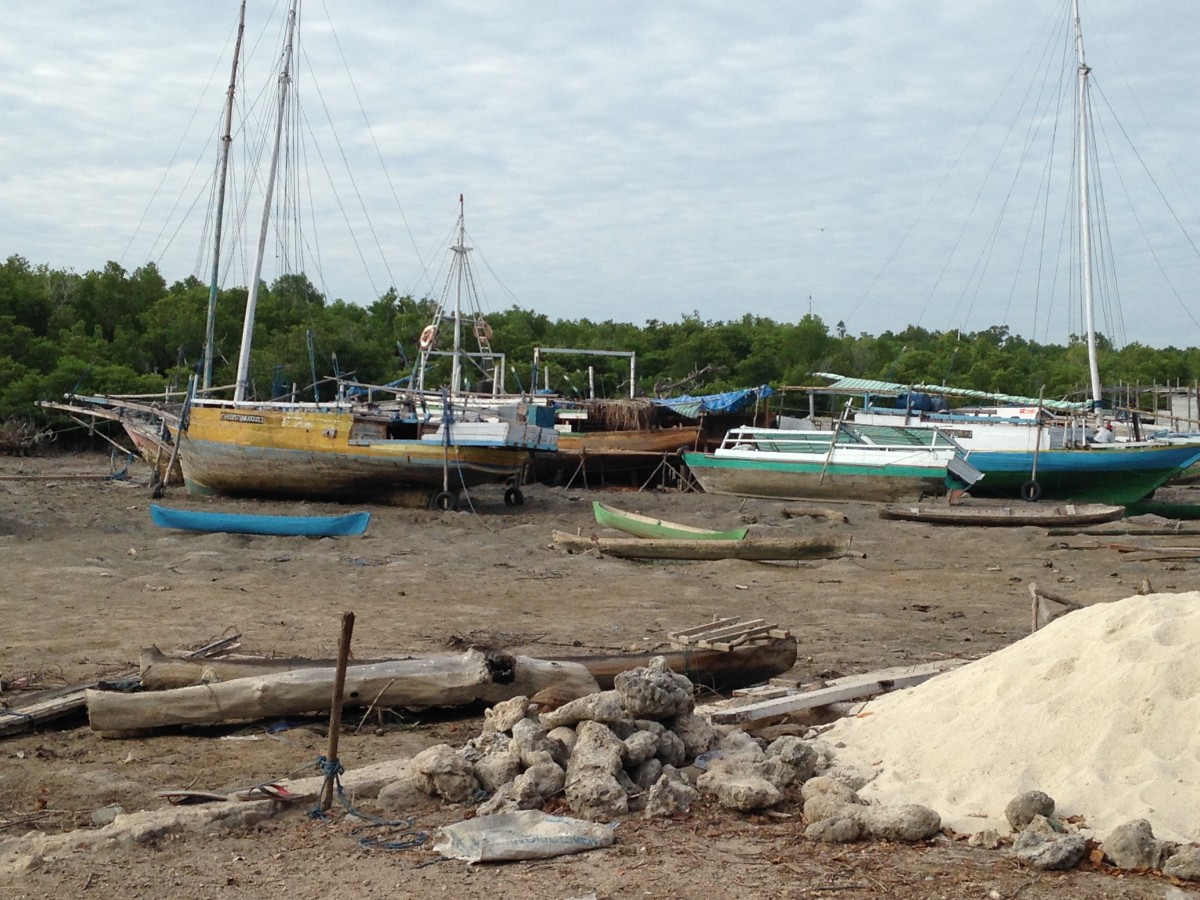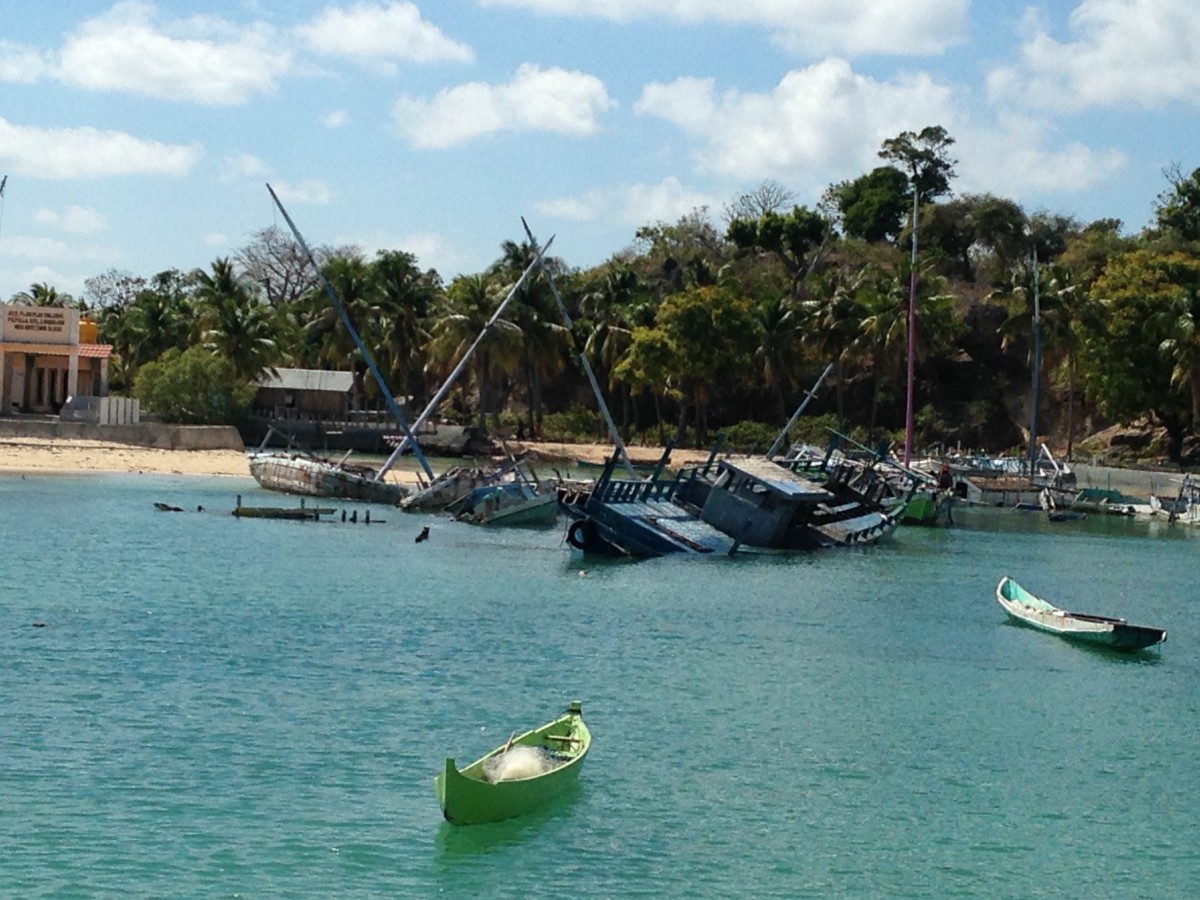Memo #387
By: Antje Missbach – antje.missbach [at] monash.edu
The tough choice between illegal fishing and transporting asylum seekers

Many Indonesian fishermen have suffered the consequences of breaking Australian law in recent years as they have tried to make a meagre living from traditional work. Because fishing in increasingly overfished seas provides inadequate income, many have tried their luck in Australian maritime territory, of which parts are conservation areas. Although catches may be better in Australian waters, it is risky work. They are frequently arrested, their boats, catch and equipment confiscated, and they face long prison terms, if convicted in court.
Many fishermen do not own their boats but are recruited by boat-owners for fishing excursions that often last several weeks. Risks faced on these trips are shared equally, but earnings from them are not. If they return with a poor catch, they may not even recover the investment they made in food and fuel before they set sail. If the boat is confiscated and destroyed by the Australian Navy or Border Force, as is often the case, their debt spirals out of control. Boats in Indonesia cost at least Rp400 million (US$40,000), but the average monthly income is a meagre Rp1-2 million (US$100-200). On their return to Indonesia after time in an Australian prison, the fishermen face their debtors, who demand compensation for the lost boats and repayment of amounts that fishermen’s families borrowed while their main income earner languished in prison, plus exorbitant interest.
With enormous debt and little opportunity to earn enough to feed their families, Indonesian fishermen are easily recruited as transporters for asylum seekers wanting to reach Australia. Their skills are invaluable in navigating the difficult seas between Indonesia and Australia. Yet, once again, the risks and earnings are distributed unequally. While the fishermen are usually arrested when they reach Australian territory and face mandatory minimum prison sentences of 5 years in Australia, those who organise the journeys usually evade arrest and punishment. More than 1440 Indonesians have been arrested and many of them convicted. While Australian policies have had little effect in deterring asylum seekers from attempting the journey, they have had brutal consequences for the families of Indonesian fishermen, making their precarious livelihoods hyper-precarious. To make matters worse, in 2009 an oil spill in the Timor Sea caused massive damage to the fishermen and the seaweed farmers in that region. The Australia-based company PTTEP Australasia which is deemed responsible for the disaster so far has not paid any compensation to the fishermen.
About the Author:
Antje Missbach is a senior research fellow at the Department of Anthropology at Monash University in Melbourne. She is interested in irregular migration and mobilities as well as people smuggling in Southeast Asia, particularly in Indonesia.

Local fishermen repair their boats in order to go another fishing expedition in Oelaba, Indonesia. Some boat however are beyond repair. (Credit: Antje Missbach)

Boats languish near the main harbour in Pepela, Indonesia. Some were abandoned because of the poor catches at sea that made the fishing excursions a losing deal. (Credit: Antje Missbach)
“Montara” – A Short Video about the Montara Oil Spill (Credit: Bright Day Films)
[vimeo]https://vimeo.com/136878167[/vimeo]
Links
- Antje Missbach, “Perilous Waters: People Smuggling, Fishermen and Hyper-Precarious Livelihoods on Rote Island, Eastern Indonesia,” Pacific Affairs 89, no. 4 (December 2016), forthcoming issue.
- Antje Missbach, “Troubled Transit: Asylum seekers stuck in Indonesia,” Singapore: ISEAS, 2015.
- Natasha Stacey, Bajo Fishing Activity in the Australian Fishing Zone, Canberra: ANU Press, 2007.
- Ruth Balint, Troubled Waters: Borders, Boundaries and Possession in the Timor Sea, Crows Nest: Allen & Unwin, 2006.
- Ruth Balint, “Small Fry: The Story of a People Smuggler,” The Monthly, November 2012.
- Emily Mitchell, “After the Spill: Investigating Australia’s Montara Oil Disaster in Indonesia,” Australian Lawyers Alliance, July 2015.
- Brooke Nolan and Philip Vincent, “Australian law on Rote?,” Inside Indonesia, October 29, 2010.
Related Memos:
See our other memos on Indonesia.